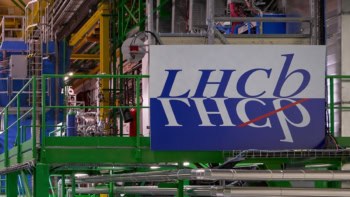
When it comes to science, success does not always beget success. That is at least according to researchers in the US who claim that setbacks at the start of a scientist’s career could —counterintuitively — lead to success later. By looking at scientists’ citation records, Dashun Wang from Northwestern University and colleagues found that early-career researchers who just missed out on grants are actually more productive in the long term than those who just pass the funding threshold.
To study the effect of early-career setbacks, the team looked at the citation records of researchers in the 10-year period after their first application for a US National Institutes of Health (NIH) grant. They focused on junior scientists who made the proposals between 1990 and 2005 and who either just missed out on funding (703 researchers) or whose proposals just passed the funding threshold (656 people) and who therefore on average received $1.3m over five years. Most NIH researchers work in medical and biosciences, not physics.
While the performance and demographic profiles of the two groups were indistinguishable, the researchers found that in the five years after their first grant application, 16% of papers produced by the near-miss group were judged “highly-cited” — defined as being in the top 5% of citations in the same field and year. In contrast, 13% of publications by the near-win group were highly cited. This trend continued over the following five years, with those researchers who missed out on funding publishing more highly-cited papers.
Comparing those just above and below a funding threshold is an excellent strategy for investigating the consequences of getting a lucky break
Arnout van de Rijt
Other measures of publication success revealed a similar pattern. These include the average citations within five years of publication and the relative citation ratio — a measure of how a paper is cited compared to others in the same field. Overall, compared to those in the near-win group, junior scientists who missed out on funding attracted on average 19% more citations in the first five years after their initial grant application, and 11% more in years six to 10 afterwards. According to the researchers, just missing out on grants early in a scientist’s career increased the probability of publishing a highly-cited paper in the next decade by 61% and boosted the scientist’s average number of citations per paper by 34%.
Losing out on a grant, however, did have some negative consequences. Over the 10-year period after the grant application, unsuccessful applicants were 13% more likely to disappear from the NIH system, the team found. “An early-career setback has powerful, opposing effects, hurting some careers, but also, quite surprisingly, strengthening outcomes for others,” the authors write.
‘Stronger’ scientists
Arnout van de Rijt, a sociologist at Utrecht University, in the Netherlands, who was not involved in the study, told Physics World that the work advances “the interesting and novel claim” that losing in an early-career research funding competition may result in “stronger” scientists. “Comparing those just above and below a funding threshold is an excellent strategy for investigating the consequences of getting a lucky break,” he says. The peril of proposals
Indeed, van de Rijt adds that the finding raises some interesting questions such as whether failure to land a grant makes researchers switch to more productive areas. Another issue is whether the top papers from “non winners” tend to be co-authored with senior scientists in whose labs they must continue to work, while winners work more independently.




